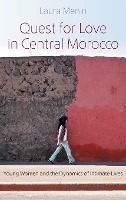Following the 2011 wave of revolutions and protest in North Africa and the Middle East, new discussions of individual freedoms have emerged in the Moroccan public sphere and human rights discourses. Public opinion rallied around the removal of an article in the Moroccan penal code that punished sexual relationships outside of marriage. As debates about personal and sexual freedom move to the forefront of society, love and intimacy remain complex issues. Moving between public and clandestine interactions and within online environments, Quest for Love in Central Morocco explores the creative ways young women navigate desire and morality.Menin's ethnography focuses on young women whose lives unfold in the low-income and lower-middle-class neighborhoods of a midsized town in Central Morocco, far from the overt influence of city life. In a way, they form a new generation whose experiences as more educated, economically mobile, and digitally connected individuals vary with those of their mothers and generations of women before them.At the heart of the book, Menin draws upon ideas of "love" as an ethnographic object and source of theoretical examination to show how love is shaped just as much through complex cultural and historical phenomena as through intersecting socioeconomic and political developments. At once, Menin is challenging stereotypes that frame Muslim cultures as too rigid to allow freedom of choice and romantic love while she is bridging the divide between romantic love and discussions of sexuality. Love becomes the metric by which young women approach romantic experiences and also shape their subjectivities around methods of intimate exchange.

